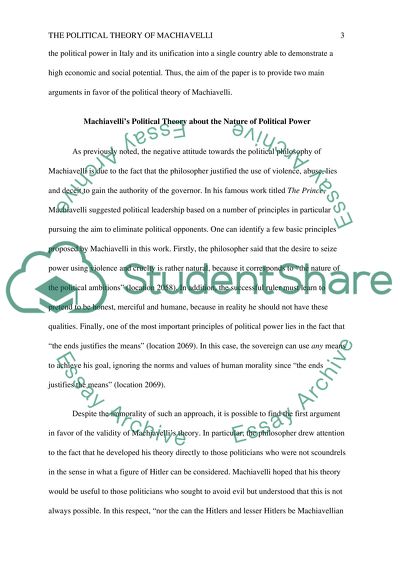Cite this document
(“The Political Theory of Machiavelli Essay Example | Topics and Well Written Essays - 1500 words - 5”, n.d.)
The Political Theory of Machiavelli Essay Example | Topics and Well Written Essays - 1500 words - 5. Retrieved from https://studentshare.org/politics/1687730-persuasive-essay
The Political Theory of Machiavelli Essay Example | Topics and Well Written Essays - 1500 words - 5. Retrieved from https://studentshare.org/politics/1687730-persuasive-essay
(The Political Theory of Machiavelli Essay Example | Topics and Well Written Essays - 1500 Words - 5)
The Political Theory of Machiavelli Essay Example | Topics and Well Written Essays - 1500 Words - 5. https://studentshare.org/politics/1687730-persuasive-essay.
The Political Theory of Machiavelli Essay Example | Topics and Well Written Essays - 1500 Words - 5. https://studentshare.org/politics/1687730-persuasive-essay.
“The Political Theory of Machiavelli Essay Example | Topics and Well Written Essays - 1500 Words - 5”, n.d. https://studentshare.org/politics/1687730-persuasive-essay.


